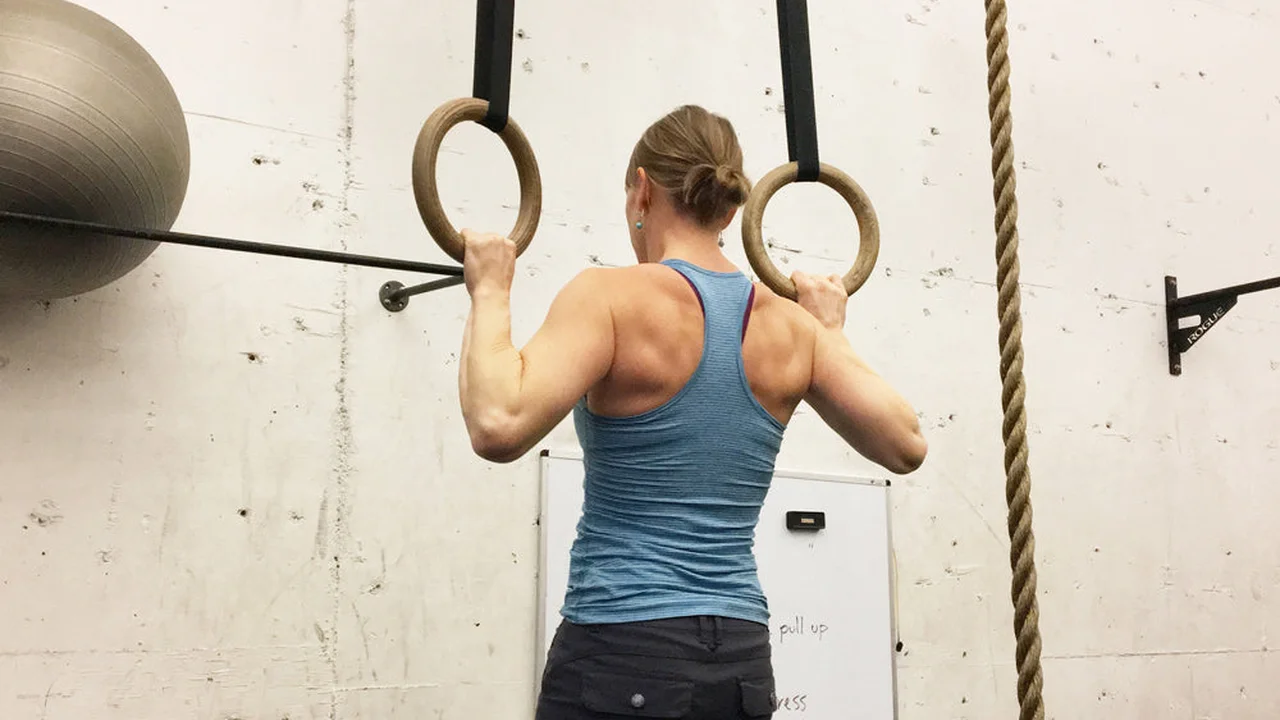Comparing Collagen vs Hyaluronic Acid for Skin Health
Compare collagen vs hyaluronic acid for skin health. Discover which ingredient is best for hydration and anti-aging.

Comparing Collagen vs Hyaluronic Acid for Skin Health
Compare collagen vs hyaluronic acid for skin health. Discover which ingredient is best for hydration and anti-aging. When it comes to achieving youthful, plump, and radiant skin, two ingredients consistently rise to the top of the skincare conversation: collagen and hyaluronic acid. Both are naturally occurring substances in our bodies, playing crucial roles in maintaining skin structure, hydration, and elasticity. However, they function differently and offer distinct benefits. Understanding these differences is key to choosing the right products for your specific skin concerns and anti-aging goals. Let's dive deep into what collagen and hyaluronic acid are, how they work, their benefits, and which one might be the better choice for you.
Understanding Collagen The Skin's Structural Foundation
Collagen is the most abundant protein in the human body, making up about 75-80% of our skin. Think of it as the scaffolding that provides structure, strength, and elasticity to your skin, bones, muscles, tendons, and ligaments. In the skin, collagen fibers are tightly woven together, creating a strong, resilient network that keeps your skin firm and smooth. It's what gives young skin its plumpness and prevents sagging.
Types of Collagen and Their Functions in Skin
While there are at least 28 different types of collagen, Type I, II, and III are the most prevalent in the body. In the skin, Type I and Type III collagen are the most significant. Type I collagen accounts for about 90% of the body's collagen and is crucial for skin, bones, tendons, and other connective tissues. Type III collagen is often found alongside Type I, particularly in rapidly growing tissues and in the early stages of wound healing. As we age, our bodies naturally produce less collagen, and the existing collagen fibers can become fragmented and disorganized. This decline typically starts in our mid-20s and accelerates with factors like sun exposure, smoking, pollution, and poor diet. The result? Fine lines, wrinkles, sagging skin, and a loss of firmness.
How Collagen Works in Skincare Products and Supplements
When it comes to skincare, collagen is often found in two main forms: topical products and oral supplements.
Topical Collagen Skincare Benefits and Limitations
Many creams, serums, and masks boast collagen as a key ingredient. The idea is that applying collagen directly to the skin will replenish lost collagen. However, collagen molecules are quite large, making it difficult for them to penetrate the skin's outer barrier effectively. While topical collagen can provide a temporary plumping effect by sitting on the skin's surface and attracting moisture, it generally doesn't integrate into the deeper layers to rebuild lost collagen. Instead, topical collagen often acts as a humectant, drawing moisture from the air into the skin, which can improve hydration and temporarily reduce the appearance of fine lines.
Oral Collagen Supplements Hydrolyzed Collagen Peptides
Oral collagen supplements, often in the form of hydrolyzed collagen or collagen peptides, are designed to be absorbed into the bloodstream. Hydrolyzed collagen has been broken down into smaller, more bioavailable peptides, making it easier for the body to digest and utilize. Once absorbed, these peptides are believed to signal the body to produce more of its own collagen. Studies suggest that regular intake of collagen supplements can improve skin elasticity, hydration, and reduce the depth of wrinkles. They can also support joint health, hair, and nails.
Recommended Collagen Products for Skin Firmness and Elasticity
If you're looking to boost your collagen intake, here are a few highly-rated options:
- Vital Proteins Collagen Peptides: This is a very popular and versatile unflavored powder that can be mixed into coffee, smoothies, or water. It contains bovine collagen peptides (Type I and III) and is known for its high quality and effectiveness in improving skin elasticity and hydration. Price: Around $25-$50 for a 10-20 oz tub.
- NeoCell Super Collagen + C: Available in both powder and tablet form, this supplement combines hydrolyzed bovine collagen (Type I and III) with Vitamin C, which is essential for collagen synthesis. Many users report improvements in skin, hair, and nails. Price: Around $15-$25 for a bottle of tablets or powder.
- Ancient Nutrition Multi Collagen Protein: This product offers a blend of five types of collagen (I, II, III, V, X) from various sources (bovine, chicken, fish, eggshell membrane). It's designed for comprehensive support for skin, joints, and gut health. Price: Around $30-$50 for a 16 oz tub.
- Further Food Collagen Peptides: Another excellent option, this brand offers grass-fed, pasture-raised collagen peptides. They also have flavored options and specific blends for beauty or gut health. Price: Around $20-$40 for a 16 oz bag.
Exploring Hyaluronic Acid The Ultimate Hydration Booster
Hyaluronic acid (HA) is a powerful humectant, meaning it has an incredible ability to attract and hold onto water molecules. A single gram of hyaluronic acid can hold up to six liters of water! It's naturally found in our skin, connective tissues, and eyes, where it acts as a lubricant and shock absorber. In the skin, HA is a key component of the extracellular matrix, providing hydration, plumpness, and a smooth texture. It helps to keep the skin moisturized, supple, and resilient.
How Hyaluronic Acid Works to Hydrate and Plump Skin
Unlike collagen, which provides structural support, hyaluronic acid's primary role in skincare is hydration. When applied topically, HA draws moisture from the environment and from deeper layers of the skin to the surface, effectively plumping up the skin and reducing the appearance of fine lines and wrinkles caused by dehydration. This immediate plumping effect can make the skin look smoother, softer, and more radiant. As we age, our natural production of hyaluronic acid also decreases, leading to drier skin and a loss of volume.
Different Molecular Weights of Hyaluronic Acid for Deeper Penetration
You might notice skincare products mentioning different molecular weights of hyaluronic acid. This is important because the size of the HA molecule affects its ability to penetrate the skin:
- High Molecular Weight HA: These molecules are larger and tend to sit on the skin's surface, forming a hydrating barrier that prevents moisture loss and provides immediate surface hydration.
- Low Molecular Weight HA: These molecules are smaller and can penetrate deeper into the skin, providing hydration to the lower epidermal layers and offering more long-term plumping benefits.
- Hydrolyzed Hyaluronic Acid: Even smaller fragments that can penetrate even deeper, offering intense hydration.
Many effective HA serums now contain a blend of different molecular weights to provide hydration at various levels of the skin.
Recommended Hyaluronic Acid Products for Intense Hydration and Plumping
For a powerful hydration boost, consider these hyaluronic acid serums:
- The Ordinary Hyaluronic Acid 2% + B5: A cult favorite for its effectiveness and affordability. It combines low, medium, and high-molecular-weight HA with Vitamin B5 for enhanced surface and deeper hydration. Price: Around $8-$10 for 30ml.
- Paula's Choice Hyaluronic Acid Booster: This booster features a blend of HA and ceramides to not only hydrate but also strengthen the skin's moisture barrier. It's lightweight and suitable for all skin types. Price: Around $36 for 15ml.
- SkinCeuticals Hyaluronic Acid Intensifier (H.A. Intensifier): A more premium option, this serum contains a high concentration of pure hyaluronic acid, proxylane, and botanical extracts to support the skin's natural HA levels and deliver long-lasting hydration. It's excellent for plumping and reducing the appearance of fine lines. Price: Around $106 for 30ml.
- La Roche-Posay Hyalu B5 Pure Hyaluronic Acid Serum: This serum combines pure hyaluronic acid with Vitamin B5 and Madecassoside to repair and replump the skin. It's particularly good for sensitive skin. Price: Around $30-$40 for 30ml.
Collagen vs Hyaluronic Acid Key Differences and Synergistic Benefits
While both collagen and hyaluronic acid are vital for healthy, youthful skin, they play distinct roles. Collagen is the structural protein that provides firmness and elasticity, while hyaluronic acid is the hydrating molecule that plumps and moisturizes. Think of it this way: collagen is the mattress springs, giving your bed its shape and support, while hyaluronic acid is the plush padding that makes it soft and comfortable.
Direct Comparison Structural Support vs Hydration
The fundamental difference lies in their primary function. Collagen directly contributes to the skin's structural integrity. When collagen levels are healthy, the skin is firm, resilient, and less prone to sagging. Hyaluronic acid, on the other hand, doesn't directly build structure but rather fills the spaces within the skin, drawing in and holding moisture. This hydration is crucial for skin health, as well as for the optimal functioning of collagen and elastin fibers.
Addressing Different Skin Concerns Fine Lines Wrinkles and Dryness
If your primary concern is a loss of firmness, sagging, and deep wrinkles due to a breakdown of the skin's support structure, then focusing on collagen production (through supplements or ingredients that stimulate collagen synthesis) might be more beneficial. If your skin feels dry, dehydrated, or you're seeing fine lines that appear due to lack of moisture, then hyaluronic acid will be your best friend for immediate plumping and hydration.
The Power of Combination Using Both for Optimal Anti Aging Results
The good news is that you don't have to choose! Collagen and hyaluronic acid work synergistically, meaning they complement each other beautifully. Healthy collagen needs a hydrated environment to function optimally, and well-hydrated skin (thanks to HA) looks plumper, which can make existing collagen appear more robust. Many anti-aging strategies involve using both. For example, you might take a collagen supplement orally to support internal collagen production and apply a hyaluronic acid serum topically for immediate surface hydration and plumping. This dual approach addresses both the structural and hydration needs of your skin, leading to more comprehensive anti-aging results.
Choosing the Right Ingredient for Your Skin Type and Goals
Deciding whether to prioritize collagen or hyaluronic acid depends on your individual skin concerns, age, and overall skincare goals. Here's a breakdown to help you decide:
When to Prioritize Collagen for Skin Firmness and Elasticity
You might want to prioritize collagen if:
- You're noticing a loss of firmness and elasticity in your skin.
- You have visible sagging, especially around the jawline or cheeks.
- Your wrinkles are deeper and more established, indicating a breakdown of structural support.
- You're in your late 20s or older, as natural collagen production begins to decline.
- You're looking for long-term structural improvement rather than just surface hydration.
Best approach: Oral collagen supplements are generally more effective for stimulating internal collagen production. Look for hydrolyzed collagen peptides. You can also use topical ingredients like retinoids, Vitamin C, and peptides, which are known to stimulate the skin's own collagen synthesis.
When to Prioritize Hyaluronic Acid for Hydration and Plumping
You might want to prioritize hyaluronic acid if:
- Your skin feels dry, tight, or dehydrated.
- You have fine lines that appear more prominent when your skin is dry.
- You want an immediate plumping effect and a smoother skin texture.
- You have sensitive skin, as HA is generally very well-tolerated.
- You're looking to boost the effectiveness of other skincare ingredients by improving skin hydration.
Best approach: Topical hyaluronic acid serums are highly effective. Apply them to damp skin and follow with a moisturizer to lock in the hydration. Look for serums with multiple molecular weights for comprehensive hydration.
Combining Both for Comprehensive Anti Aging Skincare
For the most comprehensive anti-aging strategy, incorporating both collagen and hyaluronic acid is often recommended. This could look like:
- Morning Routine: Apply a hyaluronic acid serum after cleansing and toning, followed by your moisturizer and SPF.
- Evening Routine: Consider a collagen-stimulating serum (like one with retinoids or peptides) or a rich moisturizer containing collagen-boosting ingredients.
- Daily Supplement: Take an oral collagen supplement consistently to support internal collagen production.
This layered approach ensures your skin receives both the structural support it needs and the intense hydration that keeps it looking plump, smooth, and radiant. Remember, consistency is key with any skincare regimen. Give new products and supplements time to work, typically several weeks to a few months, before expecting significant results. Also, always patch test new products, especially if you have sensitive skin.
Beyond Skincare Lifestyle Factors for Collagen and HA Production
While topical products and supplements are great, don't forget that your lifestyle plays a massive role in maintaining healthy collagen and hyaluronic acid levels. Here are some key factors:
Dietary Considerations Foods Rich in Collagen Boosting Nutrients
A balanced diet rich in certain nutrients can support your body's natural collagen and HA production:
- Vitamin C: Essential for collagen synthesis. Found in citrus fruits, berries, bell peppers, and leafy greens.
- Amino Acids: Collagen is made of amino acids like proline, glycine, and hydroxyproline. Bone broth, chicken, fish, eggs, and legumes are good sources.
- Copper: Helps form collagen fibers. Found in nuts, seeds, dark leafy greens, and dark chocolate.
- Zinc: Important for collagen production and wound healing. Found in nuts, seeds, legumes, and meat.
- Antioxidants: Protect existing collagen from damage. Found in colorful fruits and vegetables.
- Foods rich in HA: While less common, some foods like bone broth, root vegetables (potatoes, sweet potatoes), and leafy greens are thought to support HA production.
Sun Protection The Number One Anti Aging Strategy
UV radiation from the sun is one of the biggest culprits for collagen breakdown and damage to the skin's extracellular matrix. Consistent use of broad-spectrum sunscreen with an SPF of 30 or higher, along with seeking shade and wearing protective clothing, is the single most effective anti-aging strategy. It protects your existing collagen and prevents further degradation.
Hydration and Healthy Habits for Optimal Skin Health
Drinking plenty of water throughout the day is crucial for overall skin health and helps hyaluronic acid perform its job effectively. Other healthy habits include:
- Adequate Sleep: Your skin repairs and regenerates while you sleep.
- Stress Management: Chronic stress can negatively impact skin health.
- Avoiding Smoking: Smoking severely damages collagen and elastin.
- Regular Exercise: Improves circulation, delivering nutrients to the skin.
By combining a smart skincare routine with a healthy lifestyle, you're giving your skin the best possible chance to look its best, regardless of your age. Whether you lean more towards collagen for structural support or hyaluronic acid for intense hydration, understanding their unique roles empowers you to make informed choices for your skin's long-term health and radiance.
:max_bytes(150000):strip_icc()/277019-baked-pork-chops-with-cream-of-mushroom-soup-DDMFS-beauty-4x3-BG-7505-5762b731cf30447d9cbbbbbf387beafa.jpg)






